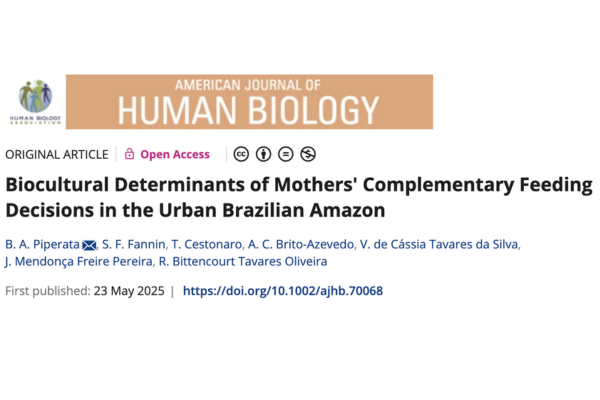New Article in Human Biology!

In their new article, published in the American Journal of Human Biology, Piperata et al. investigates the biocultural determinants of complementary feeding (CF) practices among 30 mothers in Belém, Brazil, a region marked by high infant growth faltering and poor adherence to WHO CF guidelines. Through 24-hour dietary recalls, pile-sorting activities, and in-depth interviews, the researchers identified a culturally coherent model of CF that generally aligns with WHO recommendations starting at six months, but is shaped by a convergence of biomedical advice, local ethnomedical systems, and socioeconomic constraints. Three key themes emerged: (1) mothers integrate advice from healthcare providers, digital platforms, and kin networks; (2) feeding decisions are informed by perceptions of infant readiness and long-term health, mediated by cultural beliefs about food properties and developmental vulnerability; and (3) structural challenges—including poverty, gendered caregiving burdens, and conflicting intergenerational norms—often constrain mothers’ ability to implement ideal feeding practices. The authors propose a biocultural model that emphasizes the need for policy interventions to address not only maternal knowledge but also the broader political-economic and sociocultural contexts that shape infant feeding behaviors.
Image: Human Biology Website
